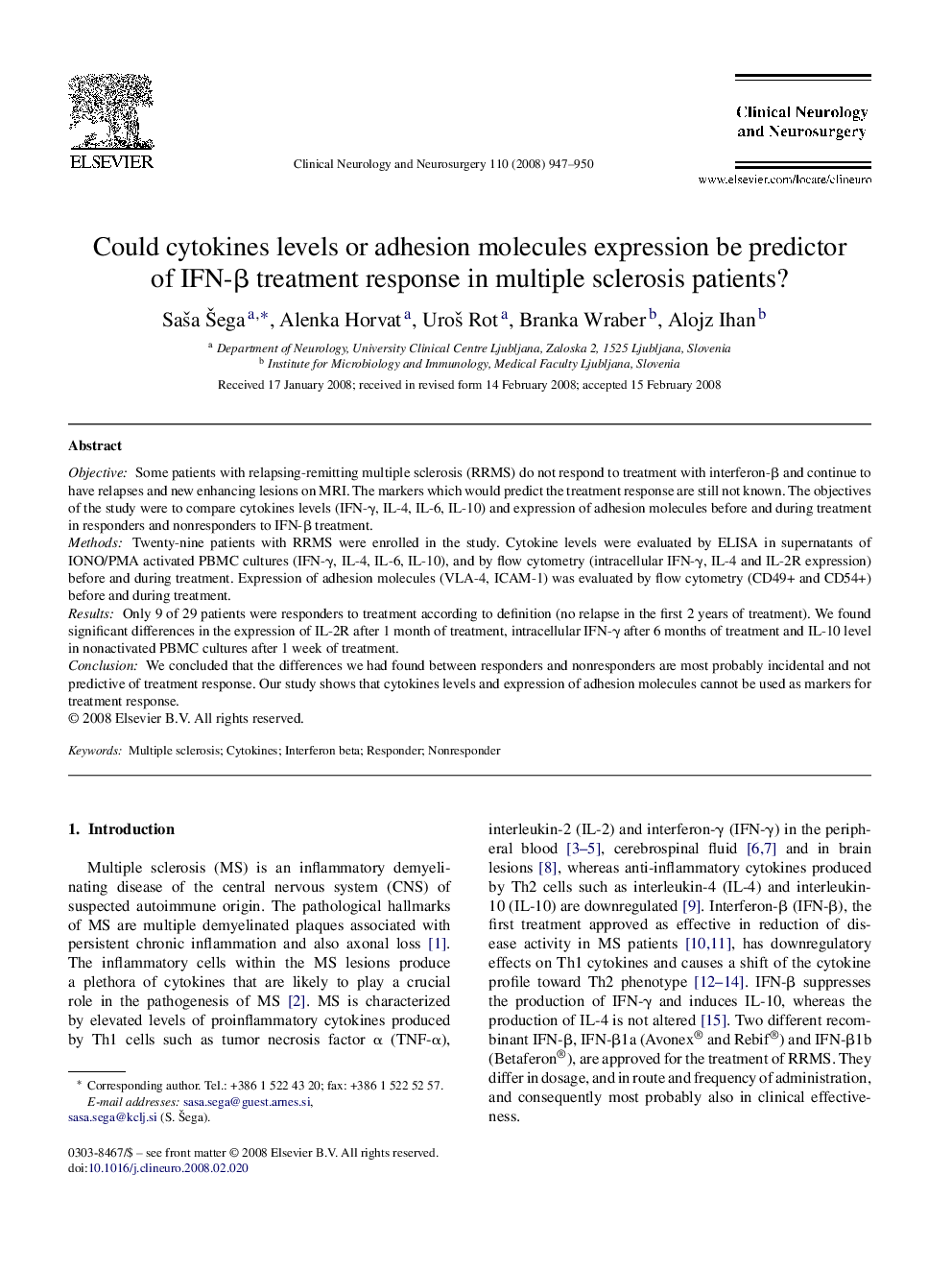| Article ID | Journal | Published Year | Pages | File Type |
|---|---|---|---|---|
| 3041686 | Clinical Neurology and Neurosurgery | 2008 | 4 Pages |
ObjectiveSome patients with relapsing-remitting multiple sclerosis (RRMS) do not respond to treatment with interferon-β and continue to have relapses and new enhancing lesions on MRI. The markers which would predict the treatment response are still not known. The objectives of the study were to compare cytokines levels (IFN-γ, IL-4, IL-6, IL-10) and expression of adhesion molecules before and during treatment in responders and nonresponders to IFN-β treatment.MethodsTwenty-nine patients with RRMS were enrolled in the study. Cytokine levels were evaluated by ELISA in supernatants of IONO/PMA activated PBMC cultures (IFN-γ, IL-4, IL-6, IL-10), and by flow cytometry (intracellular IFN-γ, IL-4 and IL-2R expression) before and during treatment. Expression of adhesion molecules (VLA-4, ICAM-1) was evaluated by flow cytometry (CD49+ and CD54+) before and during treatment.ResultsOnly 9 of 29 patients were responders to treatment according to definition (no relapse in the first 2 years of treatment). We found significant differences in the expression of IL-2R after 1 month of treatment, intracellular IFN-γ after 6 months of treatment and IL-10 level in nonactivated PBMC cultures after 1 week of treatment.ConclusionWe concluded that the differences we had found between responders and nonresponders are most probably incidental and not predictive of treatment response. Our study shows that cytokines levels and expression of adhesion molecules cannot be used as markers for treatment response.
